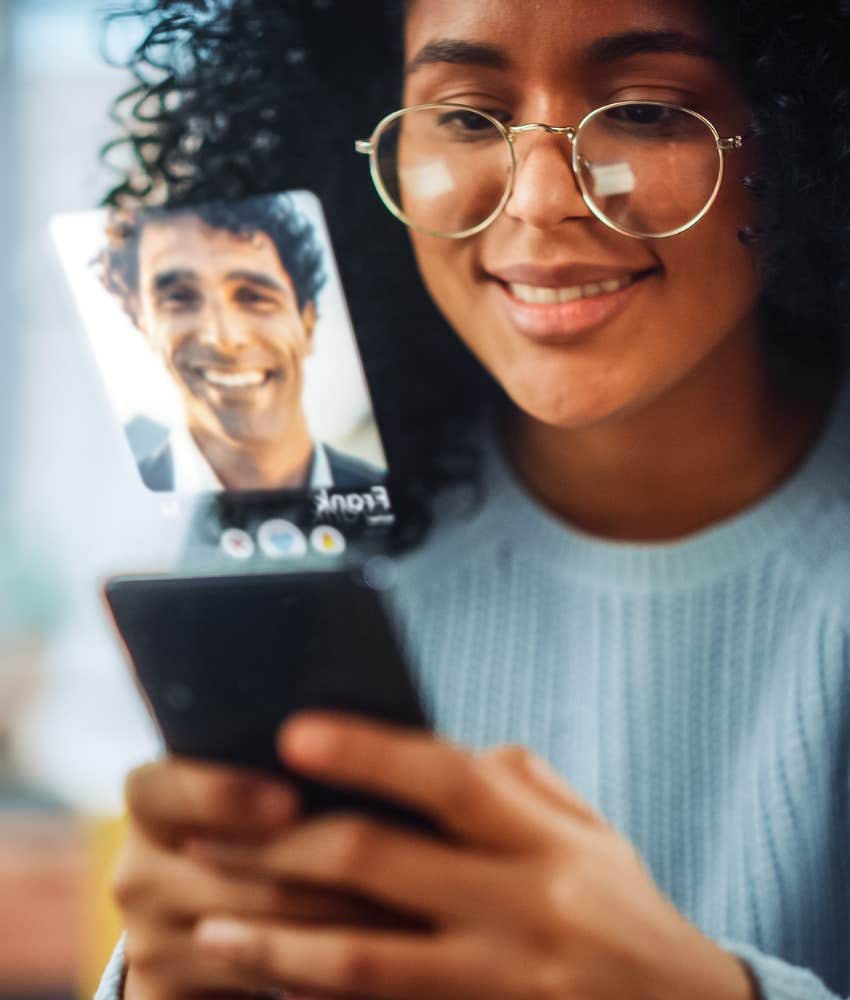You Probably Know At Least One Person Who Believes A Real Relationship With AI Is Possible, Says Survey
Many people are turning to chatbots to replace actual human connection.
 Artem Podrez | Pexels
Artem Podrez | Pexels The emergence of AI has truly flipped life on its head. From AI threatening multiple career fields, including creative endeavors such as filmmaking and writing, to becoming a trusted confidante and psychologist, it's completely changing the way we form human connections in real life.
According to a recent report from Fractl, a content marketing and PR agency, it appears that more and more people are relying on AI chatbots to nurture intimate and romantic connections, effectively abandoning the opportunity to meet an actual person in the real world.
1 in 5 Americans believe real romance is possible with AI chatbots.
Fractl surveyed 1,000 adults, analyzed search trends, and even examined how generative AI affects relationships and mental health. Researchers were able to shed light on some of the alarming ways that users are forming these deep, emotional bonds with generative AI.
 Gorodenkoff | Shutterstock
Gorodenkoff | Shutterstock
Over 1 in 8 GenAI users have reported using AI chatbots as a colleague, while 60% use it as a work assistant. But the most alarming findings were that one in five GenAI users believe romantic love between humans and AI can be real, and 3% already use a chatbot as a romantic partner.
Not only that, but one in three users has reported sharing personal information and secrets with their chatbot, and nearly one in four (24%) say they feel that AI chatbots understand them better than friends and family. The most concerning part of the survey's findings is the replacement of genuine human connection. No matter how much people want to think that AI chatbots are their "friend" or "romantic partner," it doesn't eliminate the fact that people couldn't be farther from the truth.
There's simply no replacement for meaningful relationships with actual people. As people lean on AI as a substitute for human interaction, they're simply trading genuine connection for something that may only feel real in the moment.
Over half of Americans have already started talking to AI chatbots.
A survey from Elon University found that 52% of U.S. adults have used AI large language models like ChatGPT, Gemini, Claude, and Copilot. The survey conducted in January 2025 found that 34% of its 500 respondents who had used AI said they use large language models (LLMs) at least once a day. Most popular was ChatGPT, with 72% of respondents reporting they have used it. Google’s Gemini was second, at 50%.
Similarly, a recent Harvard Business Review article reported that researchers found the top uses of AI today in the U.S. and other similar contexts are no longer just automation or productivity, but companionship and therapy. This is, in part, due to the severe loneliness epidemic and the fact that too many people seemingly lack a close group of friends with whom they can speak. Instead, they feel this pull toward AI chatbots instead.
However, there is a simple solution to wanting to form genuine connections with people, whether romantic or platonic. It's putting yourself out there and engaging with your community. It's going to local events, like open mics or pickleball. It's investing money in a therapist if you have the means and privilege. It's making sure that you're actually putting time into nurturing real-life bonds with human people instead of just defaulting to a chatbot when you're feeling lonely.
Nia Tipton is a staff writer with a bachelor's degree in creative writing and journalism who covers news and lifestyle topics that focus on psychology, relationships, and the human experience.

